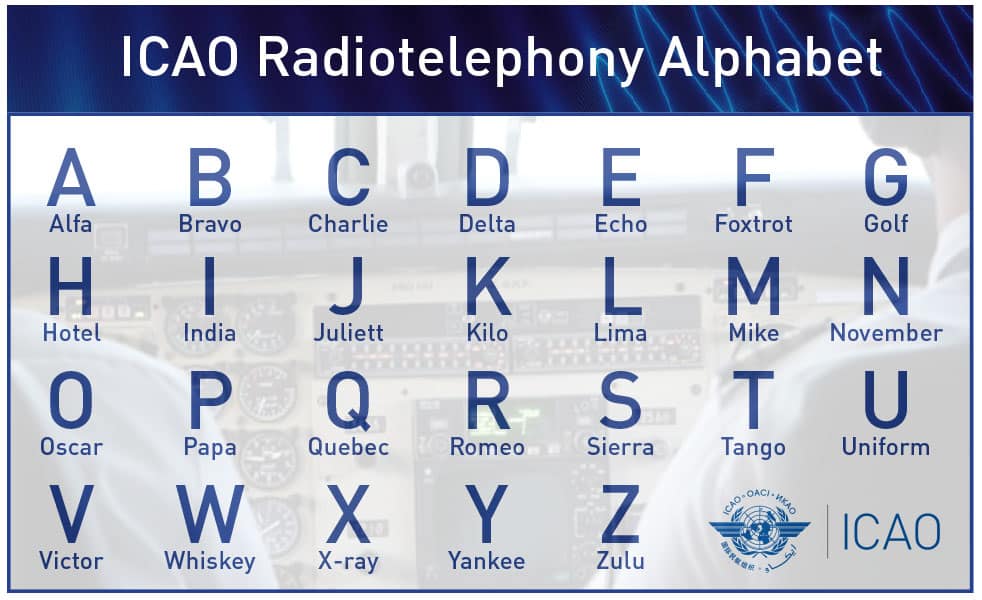

- ALPHA BETA CHARLIE DELTA ECHO HOW TO
- ALPHA BETA CHARLIE DELTA ECHO CODE
While this means investing in the latest cloud technology, AI chatbots and omnichannel communications for many businesses, there is a simpler, less technical, and much more affordable resource that contact centres simply aren’t optimising right now. In an increasingly virtual working environment, contact centre leaders must equip their frontline staff with the tools and resources that enable them to deliver an exceptional customer experience.
Your contact centre needs the phonetic alphabet.Īs customer demands grow increasingly complex and the need for service excellence accelerates, contact centres and their agents are under immense pressure to perform accurately and quickly. ALPHA BETA CHARLIE DELTA ECHO HOW TO
How to use the phonetic alphabet in the contact centre.
 What industries benefit from NATO phonetics?. The name NATO phonetic alphabet became widespread because it was NATO Allies who had spearheaded the final revision and because the signals used to facilitate the naval communications and tactics of the US and NATO have become global.Īpart from the traditional military usage, the NATO phonetic is often used in the retail industry, where customer or site details are spoken by telephone (to authorize a credit agreement or confirm stock codes), by IT professionals to communicate long codes or by airlines to communicate passenger name records internally.Ī spelling alphabet is also often called a ‘phonetic alphabet’, but this is not related to the usage of the same phrase in phonetics, which is used to indicate the sounds of human speech, such as the International Phonetic Alphabet. Telephone spelling alphabets were developed to improve communication since World War I, but the first non-military internationally recognized spelling alphabet was adopted by the CCIR (predecessor of the ITU) in 1927.ĭuring World War II, many nations used their own versions of a spelling alphabet, but the International Air Transport Association (IATA), recognizing the need for a single universal alphabet, presented a draft alphabet to the ICAO during 1947 that had sounds common to English, French, Spanish and Portuguese.ĭuring 1948-1949, Jean-Paul Vinay, a professor of linguistics at the Université de Montréal, collaborated with the ICAO on the development of a new spelling alphabet, with minimum requirements for the words to have a similar spelling in at least English, French, and Spanish, as well as be live words in each of these three languages.Įventually, the NATO alphabet became effective in 1956 and, a few years later, turned into the established universal phonetic alphabet for all military, civilian and amateur radio communications. Actually, as of 2002, the IMO’s GMDSS procedures permit the use of the ICAO numeral pronunciation. In practice, these are used rarely, as they frequently result in confusion between speakers of different languages. The IMO defines different pronunciation of numerals than does the ICAO:
What industries benefit from NATO phonetics?. The name NATO phonetic alphabet became widespread because it was NATO Allies who had spearheaded the final revision and because the signals used to facilitate the naval communications and tactics of the US and NATO have become global.Īpart from the traditional military usage, the NATO phonetic is often used in the retail industry, where customer or site details are spoken by telephone (to authorize a credit agreement or confirm stock codes), by IT professionals to communicate long codes or by airlines to communicate passenger name records internally.Ī spelling alphabet is also often called a ‘phonetic alphabet’, but this is not related to the usage of the same phrase in phonetics, which is used to indicate the sounds of human speech, such as the International Phonetic Alphabet. Telephone spelling alphabets were developed to improve communication since World War I, but the first non-military internationally recognized spelling alphabet was adopted by the CCIR (predecessor of the ITU) in 1927.ĭuring World War II, many nations used their own versions of a spelling alphabet, but the International Air Transport Association (IATA), recognizing the need for a single universal alphabet, presented a draft alphabet to the ICAO during 1947 that had sounds common to English, French, Spanish and Portuguese.ĭuring 1948-1949, Jean-Paul Vinay, a professor of linguistics at the Université de Montréal, collaborated with the ICAO on the development of a new spelling alphabet, with minimum requirements for the words to have a similar spelling in at least English, French, and Spanish, as well as be live words in each of these three languages.Įventually, the NATO alphabet became effective in 1956 and, a few years later, turned into the established universal phonetic alphabet for all military, civilian and amateur radio communications. Actually, as of 2002, the IMO’s GMDSS procedures permit the use of the ICAO numeral pronunciation. In practice, these are used rarely, as they frequently result in confusion between speakers of different languages. The IMO defines different pronunciation of numerals than does the ICAO: ALPHA BETA CHARLIE DELTA ECHO CODE
However, each agency chooses one of two different sets of numeric code words. Note that “Alpha” is written as “Alfa” and “Juliet” is written as “Juliett”, which are the spellings still in use in the international version of the alphabet, to avoid possible critical mispronunciations by speakers of other languages.Īfter ICAO developed the phonetic, this was adopted by many other international and national organizations, including the IMO.

The 26 code words in the spelling alphabet are assigned to the 26 letters of the English alphabet in alphabetical order as follows: Alfa, Bravo, Charlie, Delta, Echo, Foxtrot, Golf, Hotel, India, Juliett, Kilo, Lima, Mike, November, Oscar, Papa, Quebec, Romeo, Sierra, Tango, Uniform, Victor, Whiskey, X-ray, Yankee, Zulu.







 0 kommentar(er)
0 kommentar(er)
